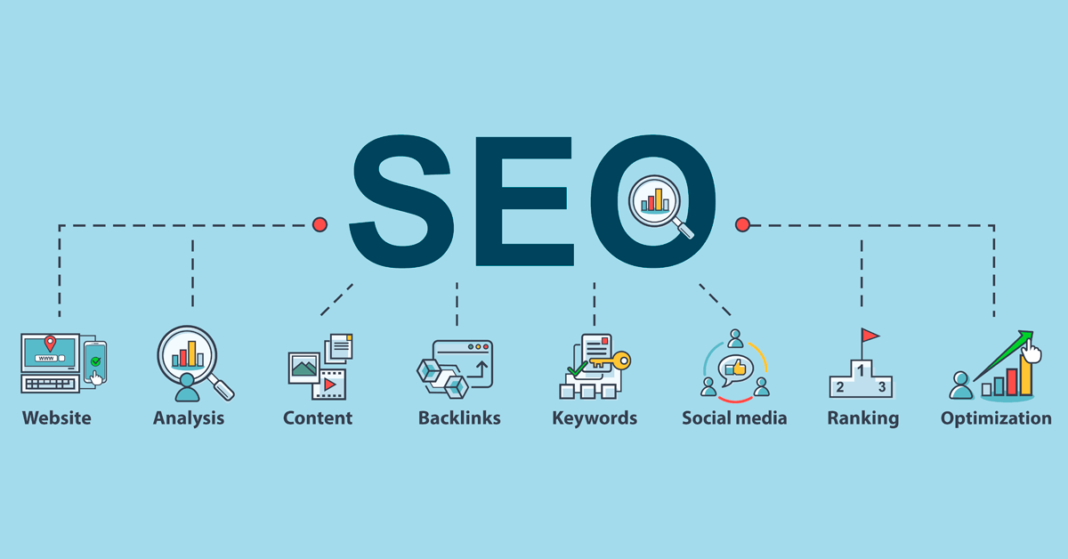In the ever-evolving landscape of digital marketing, staying abreast of Google’s algorithms is paramount for maintaining a competitive edge in search engine rankings. With Google constantly refining its algorithms to deliver more relevant and authoritative search results, website owners and SEO professionals must adapt their strategies to ensure visibility and success. In this article, we’ll explore Google’s core updates, delve into key ranking factors, and decipher strategies for navigating these algorithmic changes effectively.
Deciphering Google’s Core Updates
Google regularly releases core updates to its search algorithm, aimed at improving the quality and relevance of search results for users. These updates can have a significant impact on website rankings, sometimes leading to fluctuations in search visibility and traffic. Understanding Google’s core updates is crucial for SEO practitioners, as it allows them to identify potential changes in ranking factors and adjust their strategies accordingly.
The Purpose of Core Updates
Google’s core updates are designed to enhance the search experience by rewarding websites that demonstrate expertise, authority, and trustworthiness (E-A-T). These updates aim to surface high-quality content while demoting or penalizing low-quality or spammy websites. By analyzing user feedback and refining its algorithms, Google aims to deliver the most relevant and valuable search results to users worldwide.
Impact on Website Rankings
Core updates can have a profound impact on website rankings, often leading to fluctuations in search visibility and traffic. Websites that adhere to Google’s quality guidelines and provide valuable, authoritative content typically fare well after core updates. Conversely, sites that engage in manipulative tactics or fail to meet E-A-T standards may experience a decline in rankings. Monitoring your website’s performance following a core update is essential for identifying areas of improvement and making necessary adjustments to your SEO strategy.
Key Ranking Factors
While Google’s algorithms consist of hundreds of ranking factors, several core elements heavily influence search rankings. Understanding these key ranking factors can help website owners and SEO professionals optimize their sites for better visibility and performance in search results.
Content Quality and Relevance
High-quality, relevant content remains a cornerstone of SEO success. Google prioritizes content that meets the needs and interests of searchers, providing valuable information, insights, or solutions to their queries. Focus on creating comprehensive, well-researched content that addresses user intent and demonstrates expertise in your niche.
Backlink Profile
Backlinks, or links from other websites pointing to yours, are a crucial ranking factor in Google’s algorithm. However, not all backlinks are created equal. Quality outweighs quantity when it comes to backlinks, with links from authoritative, relevant sites carrying more weight. Focus on earning natural backlinks from reputable sources through content promotion, outreach, and relationship building.
User Experience (UX)
User experience plays a significant role in determining search rankings. Google prioritizes websites that offer a seamless, intuitive user experience across devices. Factors such as page speed, mobile-friendliness, site structure, and navigation impact UX and ultimately influence search visibility. Prioritize UX optimization to enhance your website’s performance and rankings.
Technical SEO
Technical SEO involves optimizing your website’s infrastructure and backend elements to improve crawlability, indexation, and overall site performance. Key technical SEO factors include site speed, mobile responsiveness, crawlability, URL structure, and schema markup. Addressing technical issues and implementing best practices can enhance your site’s visibility and rankings in search results.
Navigating Algorithmic Changes Effectively
In light of Google’s core updates and evolving ranking factors, adopting a proactive approach to SEO is essential for navigating algorithmic changes effectively. Here are some strategies to help you adapt to algorithm updates and maintain a strong online presence:
Stay Informed and Educated
Keep abreast of industry news, updates, and best practices in SEO. Follow reputable sources, blogs, and forums to stay informed about Google’s algorithmic changes and their potential impact on website rankings.
Focus on Quality and Relevance
Prioritize the creation of high-quality, relevant content that aligns with user intent and search queries. Invest in comprehensive research, expertise, and originality to provide value to your audience and establish authority in your niche.
Monitor Performance and Analytics
Regularly monitor your website’s performance, search visibility, and traffic metrics using analytics tools like Google Analytics and Google Search Console. Track changes in rankings, traffic patterns, and user engagement to identify areas for improvement and optimization.
Adapt and Iterate
Be prepared to adapt your SEO strategy based on algorithmic changes, industry trends, and performance data. Test and iterate different approaches to see what works best for your website and target audience.
Seek Professional Guidance
Consider consulting with experienced SEO professionals or agencies to gain insights, guidance, and expertise in navigating algorithmic changes and optimizing your website for search visibility.
In conclusion, navigating Google’s algorithms requires a deep understanding of core updates, key ranking factors, and effective SEO strategies. By focusing on quality content, user experience, technical optimization, and adaptation to algorithmic changes, you can enhance your website’s visibility, authority, and performance in search results.
To delve deeper into the world of SEO and its intricacies, check out our comprehensive guide on seo是什麼.










